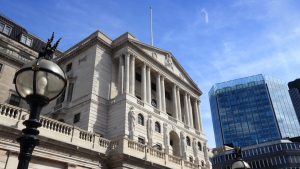In the past couple of weeks, mortgage lenders, including prominent institutions among the Big 6 banks, have experienced a notable upswing in mortgage rates. This surge can be attributed to a substantial increase in the Government of Canada 5-year bond yield, a crucial determinant of fixed mortgage rate pricing. As of Monday, the yield reached a 14-month peak of 3.58%, surpassing the recent low of 2.87% earlier this month.
Big 6 Banks Respond with Rate Increases
Acknowledging the bond yield surge, BMO, CIBC, and RBC have taken steps to raise certain posted fixed mortgage rates over the past week. The rate hikes have predominantly targeted shorter terms. BMO, for instance, increased its 1- to 3-year fixed terms by 10 to 65 basis points, while RBC raised its 1- to 3-year fixed terms by 10 basis points.
Growing Popularity of Shorter-Term Mortgages
Shorter-term mortgages, spanning between one and three years, have witnessed a surge in popularity among homebuyers and mortgage renewers. Recent data released by the Canada Mortgage and Housing Corporation (CMHC) reveals that, as of January, 36% of new mortgage originations comprised fixed-rate terms of three years or less. Additionally, 28% opted for fixed-rate terms ranging from three to five years.
This shift in mortgage preferences can be attributed to borrower expectations regarding potential rate cuts by the Bank of Canada in response to a potential recession.
Surging Funding Costs Amplify Rate Increases
Over the past ten days, nationally available 5-year fixed terms for insured mortgages (with a down payment of less than 20%) have witnessed an average increase of 0.16%, while uninsured 5-year rates have risen by approximately 0.10%. This data, sourced from MortgageLogic.news, underscores the upward trend in rates.
Ron Butler of Butler Mortgage anticipates that fixed rates will increase by 40 to 60 basis points once the ongoing round of rate hikes concludes. He attributes this rise to mounting concerns over the U.S. debt ceiling, coupled with a slight inflation bump in Canada, causing bond yields to soar. Ultimately, it is the movement of bond yields that influences fixed mortgage rates.
Concerns over U.S. Debt Ceiling and Inflation
There is a growing apprehension that the United States may default on its debt obligations unless Congress successfully passes a bipartisan deal to raise the country’s $31.4 trillion debt ceiling. Additionally, fears have arisen due to the consumer price index in Canada ticking up to 4.4% from 4.3% in April. This upward trend has led to concerns that the Bank of Canada may encounter difficulties in lowering inflation back to its 2% target.
Attention to Spreads
Ryan Sims, a mortgage broker with TMG The Mortgage Group and a former investment banker, highlights an issue of increasing concern that has been receiving little attention—the surge in overnight spreads, particularly for shorter terms. Sims describes these spreads as “through the roof.”
The 1-year bond yield currently stands 108 basis points higher than the 5-year yield, clarifying the rise in rates for shorter-term fixed mortgages. Sims emphasizes that stress is emerging in the overnight funding markets, with banks incorporating higher risk premiums into commercial, residential, and interbank lending, leading to a potential liquidity crunch.
Sims speculates that the U.S. debt ceiling discussions may contribute to this situation, although historical precedent does not indicate such extreme spreads during previous debt ceiling debates. He anticipates potential shocks to the system by the fall of 2023, which could severely impact liquidity. Despite any future decreases in bond yields and the prime rate, Sims believes that not all of these reductions will translate to borrowers, as banks will likely maintain elevated spreads to account for perceived risks and general credit constraints.
So while rising rates alone may not cause a recession, the pace of their increase and the inversion of the yield curve suggest an impending economic downturn. Mortgage seekers and industry experts alike should closely monitor the evolving fixed mortgage rates and the underlying market dynamics driving these fluctuations.
Read more on this: Lenders—including some big banks—are hiking fixed mortgage rates again – Mortgage Rates & Mortgage Broker News in Canada (canadianmortgagetrends.com)
Explore: Blog – Mortgage Squad



